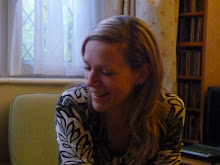
My husband and I enjoyed one of those Jungian moments of synchronicity last night. As one of the first clues came up on Only Connect (the BBC’s answer to mindless quiz shows for people with a knowledge of the Greek alphabet), he turned to me and said ‘Is there some kind of Tarot connection?’
There wasn’t. But in the next question there was, they were all other forms of divination - astrology, numerology, palmistry and tasseography. However, this wasn’t the only link to the world of divination in last night’s programme. On a later question four of the Major Arcana from a deck of Tarot cards featured as players for spot the connection. Although nobody could actually group the four together, one contestant did ask if they might be cards from the Tarot. Victoria Coren confirmed his guess, yes they were all cards from the Tarot, and, she added, they probably all foretell death and doom like all the Tarot cards do.
There wasn’t. But in the next question there was, they were all other forms of divination - astrology, numerology, palmistry and tasseography. However, this wasn’t the only link to the world of divination in last night’s programme. On a later question four of the Major Arcana from a deck of Tarot cards featured as players for spot the connection. Although nobody could actually group the four together, one contestant did ask if they might be cards from the Tarot. Victoria Coren confirmed his guess, yes they were all cards from the Tarot, and, she added, they probably all foretell death and doom like all the Tarot cards do.
Those who use the Tarot as a tool for divination or simply to explore their link to a wider spiritual story will tell you however, that even the Death card rarely actually refers to death. So why does Tarot still have this outdated image of evil, darkness and the occult? There is more death and destruction within the pages of the Bible than your average Tarot deck, and the Bible itself is often used for divination – Bibliomancy.
So what is it precisely that people like Victoria Coren are so fearful of?
Do you use divination?
So what is it precisely that people like Victoria Coren are so fearful of?
Do you use divination?
What form and why?
What reaction do you get from others?




